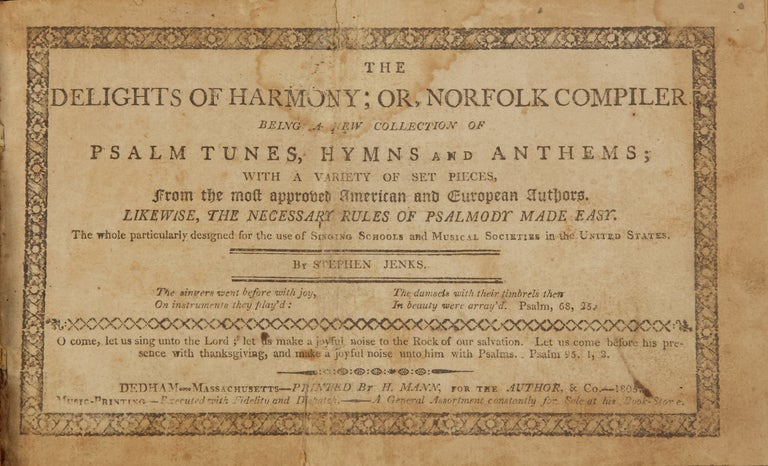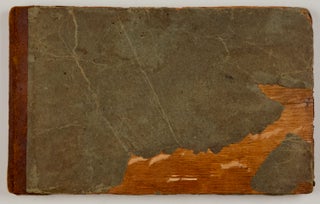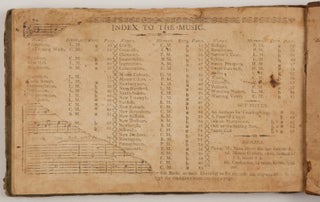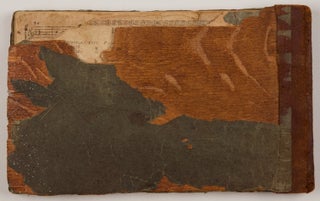The Delights of Harmony; Or, Norfolk Compiler being a new collection of Psalm Tunes, Hymns and Anthems; with a variety of set pieces, from the most approved American and European Authors. Likewise, the Necessary Rules of Psalmody Made Easy. The whole particularly designed for the use of Singing Schools and Musical Societies in the United States
Dedham, MA: H. Mann for the Author, 1805.
Oblong octavo. Contemporary leather-backed blue/gray paper-covered wooden boards.
1f. (recto title printed within decorative border, verso copyright), [iii] (Preface dated "New-Canaan, (Con.), October, 1805")), [iv] ("To the Teachers of Music and Choristers in the United States:), v-xi ("Concise Rules of Psalmody"), [xii] ("Musical Dictionary"), [xiii]-[xv] ("List of Subscribers"), xvi, [17]-95 printed music, [i] (index) pp.).
The list of subscribers includes persons resident in New Canaan, Norwalk, Wilton, Winchester, Weathersfield, Ridgbury and Colebrook, Connecticut; Dedham, Massachusetts; and New York. Signature of "J.I. Miller, Ghent, N.Y., Jan. 24, 1883" and "Property of Emma M. Sherman Ghent, N.Y." in pencil to front pastedown.
Contains 67 compositions (65 American), including one anthem, four set-pieces and one canon, by Austin, Capt. S. Belknap, S. Capen, A. Ellis, S. Hanford, G. Holbrook, O. Holden, S. Holyoke, Ingalls, W. Janes, S. Jenks, O. King, A. Knapp, Rev. C. Lee, Madan, A. Munson, Newcomb, S. Raymond, T. Swan, S. Way, Dr. Wetmore and R. Wilcox, with 34 identified first printings.
Binding worn with paper lacking to both boards, wood lacking to upper portion of lower board; hinges cracked; endpapers lacking. Somewhat worn, browned, and foxed; some dampstaining; vertical crease to title; portion of final leaf lacking, with loss of several measures to recto ("Resolution") and text to verso ("Index to the Music".
Third edition. ASMI 289.
Jenks, a composer and tunebook compiler, taught singing-schools in New England and New York state and developed a network of both pupils and fellow teachers whose compositions he went on to publish. The Delights of Harmony contains his Sorrow's Tear (1804), perhaps the earliest American setting of a poem by Thomas Moore, as well as his Evening Shade and North Salem, both of which are still frequently performed by southern shape-note singers who preserve the singing-school tradition.
"Stephen Jenks' music is representative of the type of music being written at that time in rural New England America, a cappella and an interest in melodic writing. However, his music contains striking harmonic progressions, unusual dissonances and cross relations. In "Weeping Nature" (The Delights of Harmony, 1804), for example, Jenks seems to revel in the clash of the E major / minor chord or in the song "Sorrow’s Tear," filled with cross relations between C sharp / C natural. Although many of these result from his use of modal harmony and, as previously mentioned, strong melodic writing for the individual parts, his use of these relations is not simply random, they are used to express the text being set." Wikipedia.
Item #36825
Price: $750.00 other currencies




